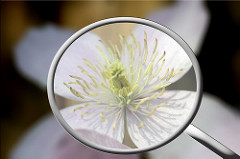
Pharmaceutical Whispers (Phispers) this week covers the issue of academic papers being made available for free, non-compliances out of China, homeopathy maybe a “therapeutic dead-end”, companies in India working towards improving compliance, FDA to get a new commissioner and a lot more.
Indian drug-makers create alliance to improve compliance
Rival Indian drug-makers have created an alliance called the Quality Forum to improve compliance standards. The Quality Forum has been formed by six companies – Sun Pharma, Torrent, Cipla, Lupin, Dr Reddy’s and Cadila. Of late, big pharmaceutical companies have suffered a great deal due to quality issues raised during regulatory inspections.
The group, in consultations with McKinsey, met top officials from the United States Food and Drug Administration (FDA) and UK's Medicines and Healthcare Products Regulatory Agency to deliberate on ways to ensure full compliance.
Thomas Cosgrove, Director Office of Compliance at the FDA, warned companies not to shift blame to junior employees or fire people who were not responsible for creating the problems.
How long will academic research remain available for free?
Alexandra Elbakyan, a Russia-based neuroscientist turned academic Robin Hood, was in the headlines yet again for her online portal Sci-Hub, which makes research papers available for free for all to view and download.
Sci-Hub was founded in 2011, and has grown to host some 47 million academic papers free for anyone to view and download. Elbakyan claims this is nearly all the pay-walled scientific knowledge that exists in the world. Although late last year a New York court ordered that Sci-Hub be taken down, the site has re-emerged with an overseas domain. It remains to be seen how long academic knowledge continues to be free.
Novartis faces problems in South Korea over rebates to local doctors
Still struggling from the clinical data manipulation scandal related to the blockbuster drug Diovan in Japan, Swiss pharmaceutical giant Novartis is now facing problems in South Korea. Prosecutors raided the South Korean unit of Novartis this week on suspicions that it had provided rebates to local doctors. The Seoul Western District Prosecutors’ Office confiscated documents and account books from Novartis Korea during the raid.
FDA to get Dr. Robert Califf as its new commissioner; Bayer announces Baumann as the new CEO
President Barack Obama's pick to lead the FDA, Dr. Robert Califf, won his confirmation from the U.S. Senate which cleared the way for him to take over the agency. Dr. Califf is currently the deputy FDA commissioner for medical products and tobacco.
Bayer’s current CEO Marijn Dekkers is all set to leave the German drug-maker in another 10 months. But the company announced Werner Baumann as his replacement, ending two years of speculation on who would lead Germany’s second largest company by market value. Baumann, 53, is a German national and has spent 28 years at Bayer.
Divi’s Lab announces successful FDA inspection
In wake of all the bad compliance news coming out of India, Divi’s Laboratories bucked the trend and announced a successful FDA inspection. In a filing to the Bombay Stock Exchange, the company said the US health regulator conducted a successful inspection of its Unit-2 facility at Visakhapatnam this month.
Sun Pharma recalls ‘potentially dangerous’ folic acid pills
The world of pharmaceuticals continues to contend with quality problems emanating out of India and China. Ranbaxy, now owned by Sun Pharmaceuticals, had to recall more than 18,000 containers of folic acid tablets from around South Africa, as it had supplied “potentially dangerous “rogue” pills mixed with folic acid, a harmless over-the-counter vitamin”.
A Schedule 3 prescription capsule called Betacin was found mixed in with the folic acid Be-Tab tablets. Folic acid, or vitamin B9, is routinely prescribed for women who are planning to fall pregnant, or are in their first trimester. But Betacin is an anti-inflammatory drug with a range of side effects in pregnant women, including delayed labour.
Another Chinese company fails EU-GMP inspection, FDA exempts chemotherapy API from Zhejiang Hisun
“Data integrity was not guaranteed” and “the condition in clean area was not acceptable for final product” were among the 21 deficiencies uncovered by Polish inspectors at Chengdu Okay Pharmaceutical Ltd. The Non-Compliance Report issued is the third one to Chinese companies in 2016 by European regulators.
The impact of Zhejiang Hisun’s import ban is being felt in the United States as the FDA had to make an exemption for import of chemotherapy’s active pharmaceutical ingredient (API) from the Chinese firm due to concerns of a shortage. The API – Daunorubicin HCl – is under import alert. “The exemption from the import alert for Daunorubicin HCl was done temporarily, to address a potential shortage in the supply of a medically necessary drug in the US market,” an FDA spokesman said.
UCB gets FDA approval for Brivaracetam
The FDA has approved UCB’s Briviact (brivaracetam) as an add-on treatment to other medications to treat partial onset of seizures in patients aged 16 years and older with epilepsy. Epilepsy is a brain disorder that causes people to have recurring seizures. A seizure is an episode, usually of relatively short duration, of abnormal brain activity. Seizures can cause a variety of symptoms, including uncontrolled movements or spasms, abnormal thinking and behavior, and abnormal sensations.
Mylan submits Advair generic
Almost six months after Mylan launched the generic version of GSK’s blockbuster Advair in the UK, Mylan announced its submission to the FDA. Mylan recently said it had filed an Abbreviated New Drug Application (ANDA) to the FDA in December. With GBP 1.97 billion (US $ 2.75 billion) of US sales in 2014, which GSK by its own estimates expects to be reduced to GBP 300 million (US $ 435 million) by 2020, this is just the beginning of the onslaught. India’s Cipla, fresh off its recent closure of a US $ 550 million acquisition, plans to file an ANDA for Advair with the FDA in 2016-17. Cipla’s generic Advair was launched in Germany and Sweden in 2014 while Hikma and Sandoz also have Advair generic applications pending with the FDA.
Cipla to enter 30 new markets in two years
Cipla Ltd plans to enter 30 new international markets over the next two years and double its revenue from overseas markets. Chief executive Subhanu Saxena, who joined Cipla in 2012, said the company has already entered 17 new markets in the last financial year. Cipla has entered markets including Sri Lanka, Iran, Yemen, Myanmar, Morocco and Algeria in the last financial year by setting up front-end operations through joint ventures or partnerships with local drug manufacturers. The company is looking at new markets in Latin America, Africa and Eastern Europe.
Homeopathy declared therapeutically dead
Professor Paul Glasziou, a leading academic in evidence based medicine at Bond University, has declared homeopathy a “therapeutic dead-end” after a systematic review concluded the controversial treatment was no more effective than placebo drugs. Professor Glasziou reviewed the evidence of 176 trials of homeopathy to establish if the treatment is valid. A total of 57 systematic reviews, containing the 176 individual studies, focused on 68 different health conditions.
The reviews found no evidence that homeopathy was more effective than a placebo.
Antibiotic contamination tests on Chinese school children
Antibiotic contamination in China was studied by researchers at Shanghai’s Fudan University. They found that 80 percent of a pool of 505 school children in Shanghai tested positive for at least one type of 21 commonly used antibiotics, including those used for animals.
Children are being widely exposed to antibiotics from tainted food and drinking water, potentially harming long-term health. China suffers from serious overuse of antibiotics, with doctors prescribing them to half of all outpatients, far above recommended levels, according to the World Health Organization (WHO).
Coffee may help prevent alcohol-related cirrhosis
A review done by the journal Alimentary Pharmacology and Therapeutics of multiple existing studies says increasing your coffee intake may help reduce your chances of developing alcohol-related cirrhosis. Drinking just two more cups of coffee every day may lower the risk of developing the liver condition by 44 percent, say the researchers who analyzed nine studies on the relationship between coffee consumption and the risk of cirrhosis. The studies had 430,000 participants. The duration of these studies varied, but the longest one lasted about 20 years.
The PharmaCompass Newsletter – Sign Up, Stay Ahead
Feedback, help us to improve. Click here
Image Credit : Examining the Clematis (using photoshop!) by Gail Frederick is licensed under CC BY 2.0
“ The article is based on the information available in public and which the author believes to be true. The author is not disseminating any information, which the author believes or knows, is confidential or in conflict with the privacy of any person. The views expressed or information supplied through this article is mere opinion and observation of the author. The author does not intend to defame, insult or, cause loss or damage to anyone, in any manner, through this article.”





